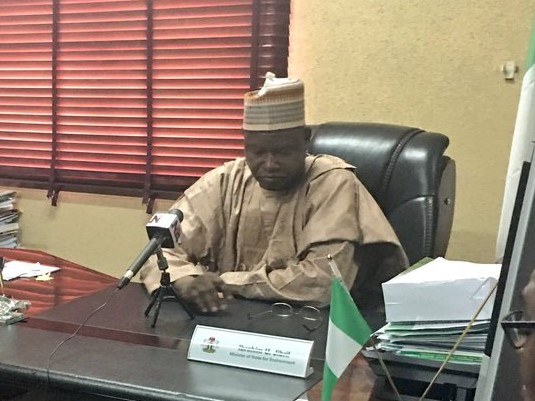As preparations reach top gear for the Second Meeting of Conference of the Parties of the Bamako Convention (Bamako COP2) scheduled to take place in Abidjan, Cote d’Ivoire from January 28 to 30 2018, a call has gone to the Federal Government to ratify as well as implement the treaty.

Leslie Adogame, SRADev Nigeria’s Executive Director, who made the call in a statement made availabled to EnviroNews on Monday, January 8, 2018, lamented that it is worrisome that Nigeria, who should play a lead role in the continent, has inadvertently lagged behind 29 other countries in Africa.
The Bamako Convention on the ban on the Import into Africa and the Control of Transboundary Movement and Management of Hazardous Wastes within Africa is a treaty of African nations prohibiting the import of any hazardous (including radioactive) waste. The Convention was negotiated by 12 nations of the Organisation of African Unity (now African Union) at Bamako, Mali in January, 1991, and came into force in 1998.
“Nigeria’s delay in ratifying the Bamako Convention after 20 years of its coming into force is a bad omen for a toxic-free country and continent; it is simply not enough to sign the Convention without ratification to implement it,” said Adogame.
Bamako COP2 will be held under the theme: “The Bamako Convention: a platform for a pollution-free Africa.” To date, the Convention has 29 Signatories and 25 Parties. Nigeria is yet to ratify and implement this Convention since becoming a signatory in 1998.
Faith Osa-Egharevba, Senior Programme Officer, at SRADev Nigeria, said, “Nigeria’s continued ‘observer status’ since COP1 in 2013 simply means no voice in the continent’s negotiation and on-going effort to implement the treaty.”
Justifying the need for the ratification, Adogame stressed that, in Africa, the impetus for the Bamako Convention arose from the realisation that several developed nations were exporting toxic wastes to Africa, such as the Koko case in Nigeria and Probo Koala case in Cote d’Ivoire. He added that the ratification and implementation of the Convention had become expedient since Nigeria recently signed a pact with Russia to build and operate a nuclear power plant despite concerns about poor quality control, safety and waste management.
In “The Future We Want”, the outcome document of Rio+20 (2012), Nigeria reaffirmed her commitment to achieve, by 2020, the sound management of chemicals throughout their life cycle and of hazardous waste in ways that lead to minimisation of significant adverse effects to human health and the environment, as set out in the Johannesburg Plan Of Implementation (JPOI 2002).
Similarly, Nigeria has consistently reiterated her diplomatic support for the UN in all its efforts, including the attainment of the 2030 Agenda for Sustainable Development. President Mohammed Buhari has since 2015 (70th session) been honoured to address the United Nation General Assembly (UNGA) each year at which he severally re-affirmed Nigeria’s commitment to the Sustainable Development Goals (SDGs) bold steps to transform the world.
“Charity, they say, must begin at home. We urgently call on the Federal Government through the Federal Ministry of Environment to match words with action away from ‘global diplomatic rhetoric’ to ratify the Convention before the COP2 meeting,” said Adogame.
